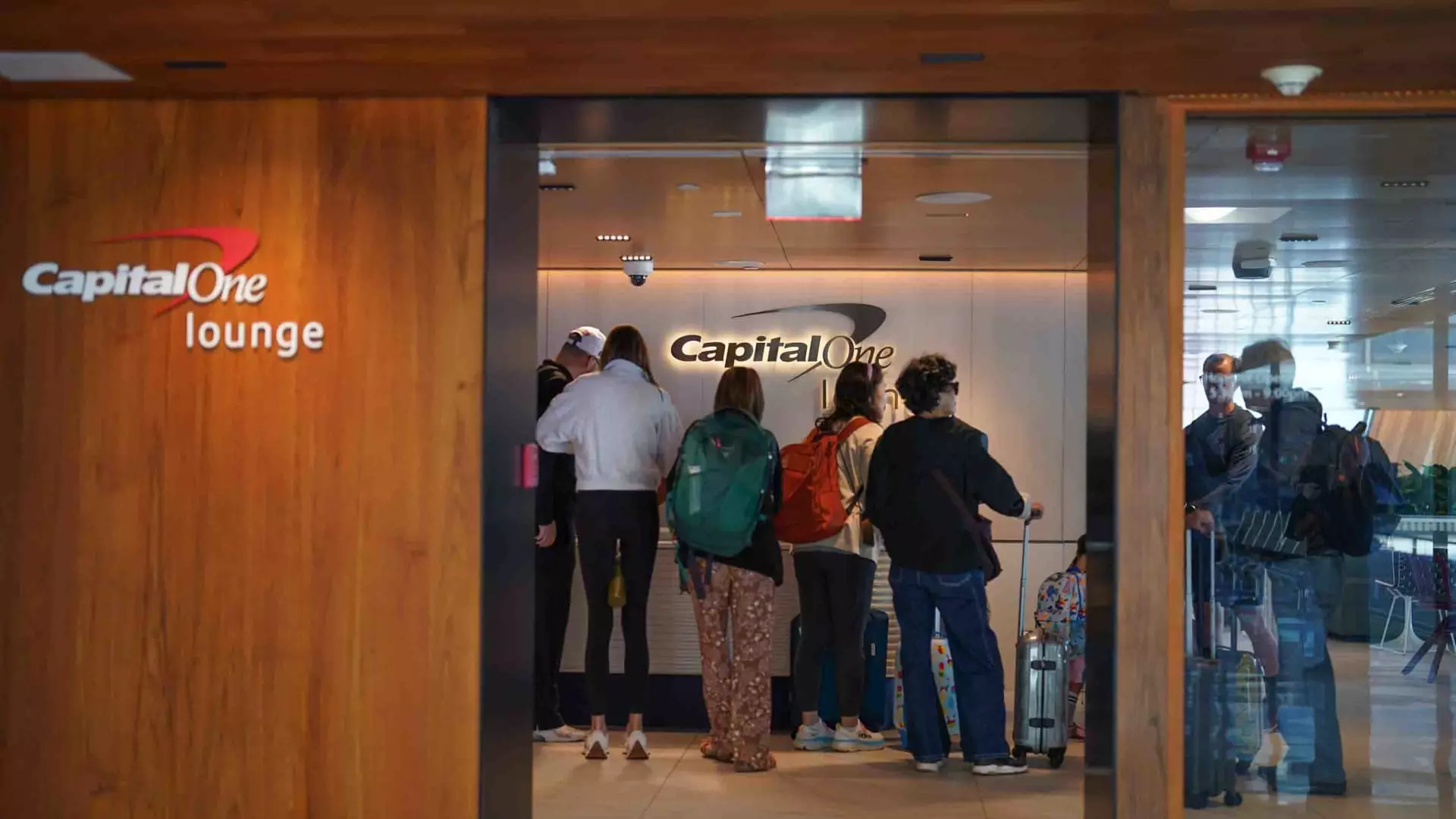In an age where the price of airplane tickets has seen a marked decline, it is ironically becoming increasingly difficult – and expensive – to enjoy the privileges of airport lounges. Recent moves by Capital One, one of the leaders in travel credit cards, have significantly altered the landscape of lounge access, revealing an unfortunate trend toward exclusivity. This transformation prioritizes profit over accessibility, transforming once welcoming spaces into exclusive enclaves for a select few. As travelers, we must confront the unsettling reality that the promise of comfort during long layovers is now fenced off behind a paywall, and for many, it is simply out of reach.
Charging for Comfort
Capital One’s announcement that starting February 1, 2024, its Venture X cardholders will face hefty fees for bringing additional guests into airport lounges is a glaring example of this shift toward monetization. The requirement to pay $125 annually for additional cardholders, and extortionate fees for guests, is a blatant cash grab that undermines the spirit of loyalty programs. Travelers must now fork over $45 for each adult guest and $25 for minors just to enjoy the basic amenity that was once included with their card. This not only diminishes the value proposition of the card but also places an added financial strain on families looking for a moment of respite amidst the chaos of air travel.
Exclusivity at Any Cost
The rationale behind these new policies, framed as a necessary measure to combat incoming crowds, is entirely self-serving. Capital One’s assertion that too many customers are experiencing wait times in lounges reflects a corporate failure to adequately manage their successful expansion. It suggests a lack of foresight that is hard to ignore, particularly when viewed alongside the competitive landscape of the travel credit card industry. With the new spending requirement of $75,000 annually to achieve complimentary guest access, they are sending a clear message: lounges are no longer a right for their cardholders but rather a privilege reserved for the wealthiest among us.
American Express and JPMorgan Chase have set a distressing precedent by introducing similarly stringent measures, but this does not excuse Capital One’s actions. When did the ability to escape the noise and stress of the airport terminal become a status symbol? This trend trivializes the communal nature of travel and instead fosters an atmosphere of exclusivism that is particularly troubling in a time when we should be connecting more than ever.
A Market for the Elite
The reality is that airport lounges, once viewed as a haven for weary travelers, are morphing into exclusive social clubs. The idea that you might enjoy a moment of peace and quiet with family or friends before a flight is being eroded by a marketplace designed for the affluent traveler. Those who cannot afford to meet these high barriers will miss out on an experience that was once accessible to all. It’s hard not to feel disheartened when considering how much we have lost in the pursuit of profit: relaxation, connection, and community have been traded for a quick dollar.
Moreover, the push from airline brands to elevate the exclusivity of their lounges reflects a broader trend across the travel industry that prioritizes luxury over inclusivity, leaving ordinary travelers to wonder where they fit into this evolving landscape. The focus on premium experiences for a select few is a disservice to the core values of hospitality and the shared experiences that make travel so enriching.
Revolutionizing Access
As these corporate giants continue to escalate their fight for exclusivity, it is imperative that consumers recognize the broader implications. The challenge lies not just in adapting to these escalating fees, but in rallying against a system that is rapidly diverging from accessible travel experiences. Lounge access should not be a privilege only for a few elite members; it should be a respite available to all travelers seeking comfort and calm amidst the bustle of modern travel.
In a time when connection is more crucial than ever, it is essential to advocate for travel experiences that are inclusive and equitable, celebrating the shared joys of journeying rather than commodifying them for profit. The status quo of exclusionary practices needs to be examined, and we must campaign for a return to the values of hospitality that originally framed the travel industry.


Leave a Reply